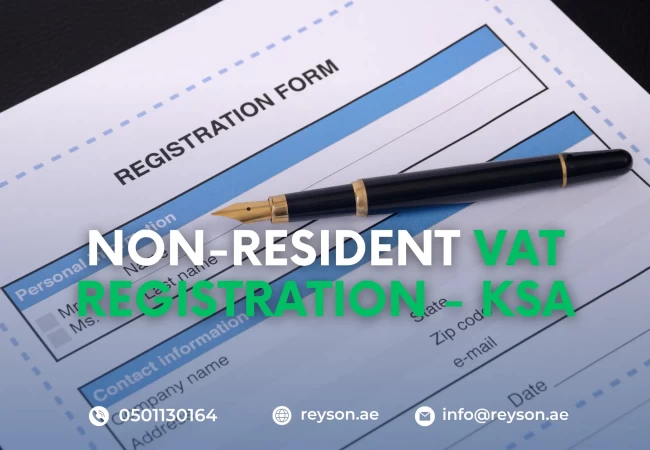

Value Added Tax (VAT) was introduced in Saudi Arabia on January 1, 2018 at a standard rate of 5%. The rate was later increased to 15% effective July 1, 2020. VAT applies to most goods and services supplied in the Kingdom, with some exceptions. Non-resident businesses that make supplies with a place of supply in Saudi Arabia are generally required to register for VAT if the customer is not VAT registered. However, the mandatory appointment of a tax representative has been removed, making registration easier. The purpose of this post is to guide Non Resident VAT Registration in KSA and highlight key considerations.
To be eligible for VAT registration, a non-resident business must meet the following criteria:
Other designated persons like foreign governments, international organizations, and diplomatic bodies are also eligible for VAT registration in Saudi Arabia, even if they are not carrying on an economic activity in the Kingdom.
The KSA VAT registration for non-residents involves two stages:
The application must be made electronically through the ZATCA online portal, along with supporting documents. Certain key considerations include:
In KSA, a tax representative is a legal figure responsible for compliance with all the requirements of organizing Value-Added Taxation (VAT) for non-resident companies. A tax representative is a person or firm legally authorized to represent the non-resident business in all Taxation concerns, particularly VAT in the KSA. Some of the matters that the representative is supposed to do include; registration of the business with VAT, the filing of tax returns as well and the making of payments on behalf of the business. They also interface the business with the Saudi Arabian tax agency, the General Authority of Zakat and Tax (GAZT).
The following benefits can be accrued by non-resident businesses in case they appoint a tax representative; Also, it helps avoid non-compliance with the VAT law and other related legislations which attract penalties and fines. Secondly, an appointment of a tax representative can ensure legal advice and assistance concerning the KSA’s VAT laws and procedures regarding the tax system. This can be especially useful if the company has no prior knowledge of the contextual taxation system. Also, the use of a tax representative is that this individual can communicate with the GAZT, resolve all possible problems or questions. Thus, non-resident businesses planning to operate in KSA must appoint a tax representative to help them meet the expectations for VAT implementation without interruptions regularly.
Compliance and reporting obligations pertain to VAT regulations in Saudi Arabia (KSA). include:
Non-resident businesses making supplies in Saudi Arabia need to carefully evaluate their VAT registration obligations. The recent changes have made the process simpler by removing the mandatory tax representative requirement. However, the eligibility criteria and application process still need to be navigated carefully. Seeking Reyson Badger's advice is recommended to ensure compliance.